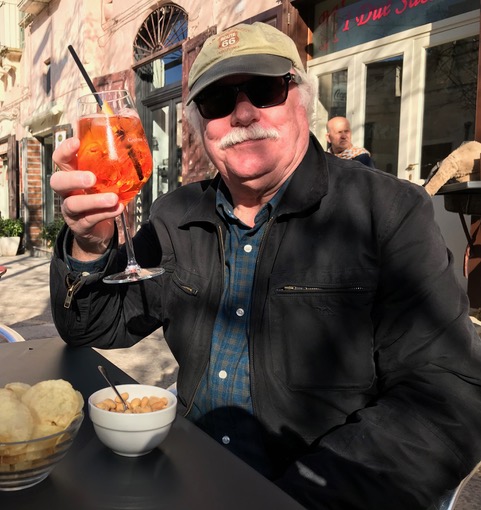
Dreams can be challenging for the grieving. There are plenty of theories about why we dream and one common explanation is that they help us process emotions. They can be particularly poignant when they involve someone we love who has died. In another of her reflections on her own grief, GAY MCKINLEY shares her experience.
~~~
Ever since David died so suddenly in Italy back in January 2020, many people have asked me on and off if I can feel David’s presence, or if he has ‘visited’ me, or whether I have had dreams about him. For several months I certainly had no recollection of any dreams, and at times I felt even more ‘abandoned’ because I hadn’t had any sign that he was still around me. So having no dreams was a challenge.
Then around six months after David died, I did have a dream that shook me profoundly.
The challenging dream…
What do you do when you have THAT dream?
It was such a complex one I find the details difficult to remember. What I do remember though is that David was very much with me, and we were looking at various things happening in the ocean, but when I said to him: “did you see THAT?” – he had missed everything that I had pointed out to him. In life, David always saw things before I did and had to point them out to me – even when he was driving – and I was the (obviously) comatose passenger.
Fast forward into the dream and we are back home – but not a room I recognise – and there is a calendar on the wall. My son Phil is with us and pointing out to me that of course David would not have been able to see the things I was pointing out to him because he really is dead and is not coming back. This was said with great compassion and sadness. David (in the dream) was protesting and slowly it dawned on him that he REALLY was no longer with me, and he grabbed me burying his face in my belly and we fell on the bed both sobbing and sobbing.
I woke up.
David was beside me.
For a moment I thought the whole thing was a very bad dream and that David would in reality be beside me in the bed. I knew he wasn’t – but I still needed to check. I thought that if I didn’t look, for a moment I could still pretend that he could have been. I stayed put. Putting off the inevitable. And this more than six months after his death. Bloody hell.
I slowly turned my head and saw the photograph of him that I now have on his bedside table. It was of him on the last day of his life in Matera toasting with an Aperol Spritz. As I saw it, I knew (again) that he was gone. But bizarrely I still had to look at his pillow to confirm that his head wasn’t peacefully laying on it. It wasn’t.
The wrenching kick in the gut I felt was like being told the news of his death for the very first time. How can this be? Again, I tell myself – so this is what grief is. How on earth am I going to get through the next hour let alone the rest of my life? And again, I take a breath. Just one breath. One breath I can do. Good Grief! He is not coming back.
More resources on death and connection to dreams.
It is very common for people to have dreams about those they love, after they have died. Sometimes these dreams have special significance.
Death bed visions are another aspect of the role of dreams when we are dealing with death.
And sometimes the communication of something, such as an expected death, comes to us through dreams.
